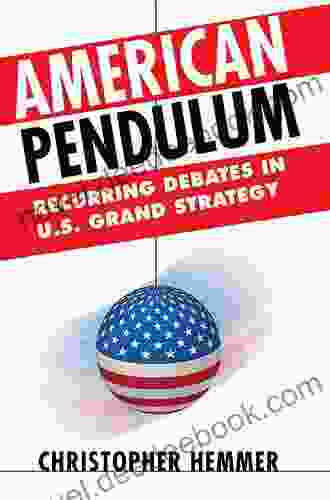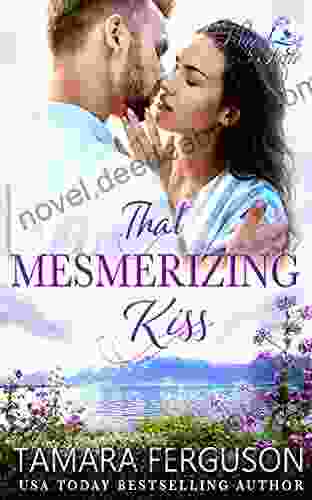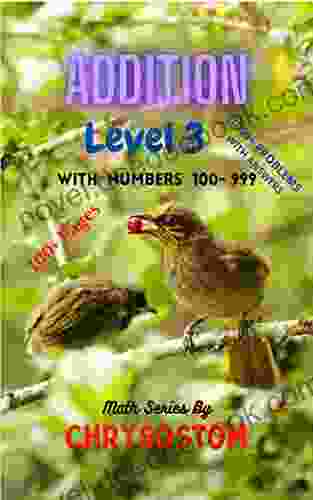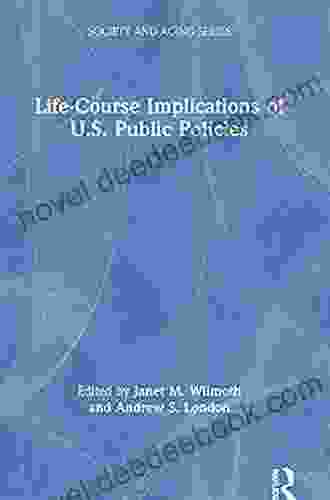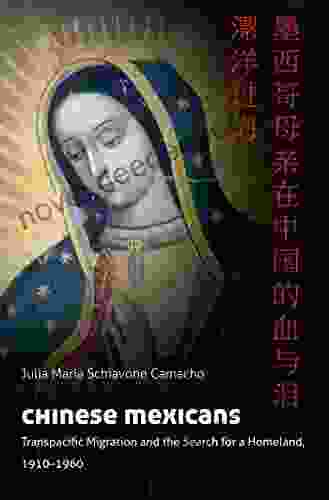Recurring Debates in Grand Strategy: Cornell Studies in Security Affairs

Grand strategy, the art and science of achieving national security objectives, has been the subject of ongoing debate and discussion throughout history. From the ancient Greek philosophers to modern-day policymakers, scholars and practitioners have grappled with the complex challenges of formulating and implementing grand strategies. This article explores the recurring debates in grand strategy, examining the different perspectives and approaches that have shaped the field. We will delve into the key arguments and criticisms of each approach, providing a comprehensive overview of the intellectual landscape of grand strategy and highlighting the ongoing debates and challenges in the field.
4.5 out of 5
| Language | : | English |
| File size | : | 1611 KB |
| Text-to-Speech | : | Enabled |
| Screen Reader | : | Supported |
| Enhanced typesetting | : | Enabled |
| Word Wise | : | Enabled |
| Print length | : | 237 pages |
Realism
Realism is one of the oldest and most influential schools of thought in grand strategy. Realists argue that the international system is anarchic, meaning that there is no overarching authority to enforce rules or laws. As a result, states must rely on their own power to protect their interests. Realists believe that states are rational actors that seek to maximize their power and security. They argue that cooperation between states is difficult to achieve and that conflict is inevitable. Some of the key assumptions of realism include:
- The international system is anarchic.
- States are the primary actors in the international system.
- States are rational actors that seek to maximize their power and security.
- Cooperation between states is difficult to achieve.
- Conflict is inevitable.
Realism has been criticized for being too pessimistic and for ignoring the role of non-state actors in the international system. However, it remains a powerful and influential school of thought in grand strategy. Some of the most prominent realist scholars include Thucydides, Niccolò Machiavelli, Thomas Hobbes, and Henry Kissinger.
Liberalism
Liberalism is another major school of thought in grand strategy. Liberals argue that the international system is not inherently anarchic and that cooperation between states is possible. Liberals believe that states are not simply power-maximizing actors, but that they also have interests in peace, prosperity, and justice. Liberals argue that international institutions can help to promote cooperation and reduce conflict. Some of the key assumptions of liberalism include:
- The international system is not inherently anarchic.
- States are not simply power-maximizing actors.
- Cooperation between states is possible.
- International institutions can help to promote cooperation and reduce conflict.
Liberalism has been criticized for being too optimistic and for ignoring the role of power in international relations. However, it remains a powerful and influential school of thought in grand strategy. Some of the most prominent liberal scholars include Immanuel Kant, Woodrow Wilson, and John Rawls.
Constructivism
Constructivism is a more recent school of thought in grand strategy. Constructivists argue that the international system is not objective, but rather is socially constructed by the interactions of states. Constructivists believe that states' identities, interests, and norms are shaped by their interactions with other states. Constructivists argue that cooperation between states is possible if states can develop shared identities and norms. Some of the key assumptions of constructivism include:
- The international system is not objective, but rather is socially constructed.
- States' identities, interests, and norms are shaped by their interactions with other states.
- Cooperation between states is possible if states can develop shared identities and norms.
Constructivism has been criticized for being too idealistic and for ignoring the role of material factors in international relations. However, it remains a powerful and influential school of thought in grand strategy. Some of the most prominent constructivist scholars include Alexander Wendt, Martha Finnemore, and Kathryn Sikkink.
Postmodernism
Postmodernism is a more recent school of thought in grand strategy. Postmodernists argue that the traditional concepts of grand strategy are no longer relevant in the contemporary world. Postmodernists believe that the international system is too complex and interconnected for any one state to achieve its objectives through grand strategy. Postmodernists argue that we need to develop new ways of thinking about grand strategy that are more inclusive and responsive to the challenges of the 21st century. Some of the key assumptions of postmodernism include:
- The traditional concepts of grand strategy are no longer relevant in the contemporary world.
- The international system is too complex and interconnected for any one state to achieve its objectives through grand strategy.
- We need to develop new ways of thinking about grand strategy that are more inclusive and responsive to the challenges of the 21st century.
Postmodernism has been criticized for being too relativistic and for providing no clear guidance for policymakers. However, it remains a powerful and influential school of thought in grand strategy. Some of the most prominent postmodernist scholars include Michel Foucault, Jean Baudrillard, and Judith Butler.
The recurring debates in grand strategy reflect the complex and challenging nature of international relations. There is no easy way to achieve national security objectives, and there is no one-size-fits-all approach to grand strategy. The best approach to grand strategy will vary depending on the specific circumstances. However, by understanding the different perspectives and approaches to grand strategy, policymakers can make more informed decisions about how to protect their national interests.
4.5 out of 5
| Language | : | English |
| File size | : | 1611 KB |
| Text-to-Speech | : | Enabled |
| Screen Reader | : | Supported |
| Enhanced typesetting | : | Enabled |
| Word Wise | : | Enabled |
| Print length | : | 237 pages |
Do you want to contribute by writing guest posts on this blog?
Please contact us and send us a resume of previous articles that you have written.
 Page
Page Chapter
Chapter Story
Story Library
Library Paperback
Paperback E-book
E-book Newspaper
Newspaper Sentence
Sentence Shelf
Shelf Glossary
Glossary Foreword
Foreword Manuscript
Manuscript Scroll
Scroll Tome
Tome Library card
Library card Biography
Biography Memoir
Memoir Encyclopedia
Encyclopedia Dictionary
Dictionary Thesaurus
Thesaurus Narrator
Narrator Resolution
Resolution Librarian
Librarian Card Catalog
Card Catalog Borrowing
Borrowing Stacks
Stacks Study
Study Research
Research Scholarly
Scholarly Lending
Lending Academic
Academic Special Collections
Special Collections Interlibrary
Interlibrary Literacy
Literacy Study Group
Study Group Dissertation
Dissertation Storytelling
Storytelling Awards
Awards Reading List
Reading List Theory
Theory Eileen Barish
Eileen Barish John Kember
John Kember Mark Johnston
Mark Johnston Horatio Alger
Horatio Alger Janis Winehouse
Janis Winehouse Rhenna Morgan
Rhenna Morgan William G Moseley
William G Moseley Dr Sabrina Brown
Dr Sabrina Brown Kimberley Smith
Kimberley Smith Megan Atwood
Megan Atwood Norman L Macht
Norman L Macht Michael St Pierre
Michael St Pierre Jisha Menon
Jisha Menon Rob Cole
Rob Cole Tim Murphy
Tim Murphy Louise Warwick Booth
Louise Warwick Booth Mara Wells
Mara Wells Mikael Lindnord
Mikael Lindnord Toby Neighbors
Toby Neighbors Julianne Wurm
Julianne Wurm
Light bulbAdvertise smarter! Our strategic ad space ensures maximum exposure. Reserve your spot today!
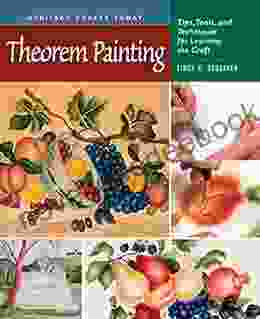
 Houston PowellTips, Tools, and Techniques for Mastering the Heritage Craft of Woodworking
Houston PowellTips, Tools, and Techniques for Mastering the Heritage Craft of Woodworking Jeff FosterFollow ·15.9k
Jeff FosterFollow ·15.9k E.E. CummingsFollow ·16.8k
E.E. CummingsFollow ·16.8k Chuck MitchellFollow ·16.1k
Chuck MitchellFollow ·16.1k Jimmy ButlerFollow ·5.6k
Jimmy ButlerFollow ·5.6k Dwayne MitchellFollow ·12.4k
Dwayne MitchellFollow ·12.4k Matt ReedFollow ·12.5k
Matt ReedFollow ·12.5k Cortez ReedFollow ·15.2k
Cortez ReedFollow ·15.2k Fabian MitchellFollow ·7.8k
Fabian MitchellFollow ·7.8k

 Bryce Foster
Bryce FosterPerforming Asian American Women On Screen And Scene
The representation of Asian American women...
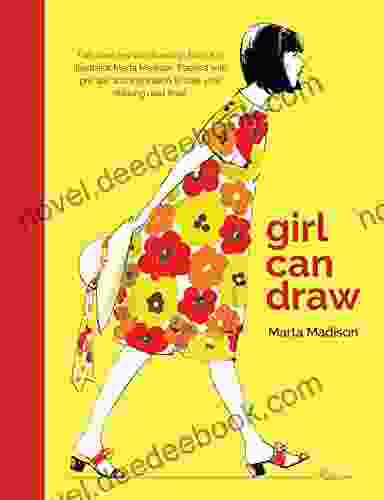
 Frank Mitchell
Frank MitchellGirl Can Draw: A Spirited and Inspiring Play by Joe...
Prologue In the realm of...

 Marc Foster
Marc FosterThe Epic Story of Race and the American Media: A Journey...
From the Shadows of Slavery to the Dawn of...

 Demetrius Carter
Demetrius CarterThe Ultimate Guide to Hiking West Virginia: Discover the...
West Virginia, often referred to as...

 Isaiah Price
Isaiah PriceThe Ten Step Guide on How to Become Famous: Unleash Your...
In the captivating world of entertainment...
4.5 out of 5
| Language | : | English |
| File size | : | 1611 KB |
| Text-to-Speech | : | Enabled |
| Screen Reader | : | Supported |
| Enhanced typesetting | : | Enabled |
| Word Wise | : | Enabled |
| Print length | : | 237 pages |


